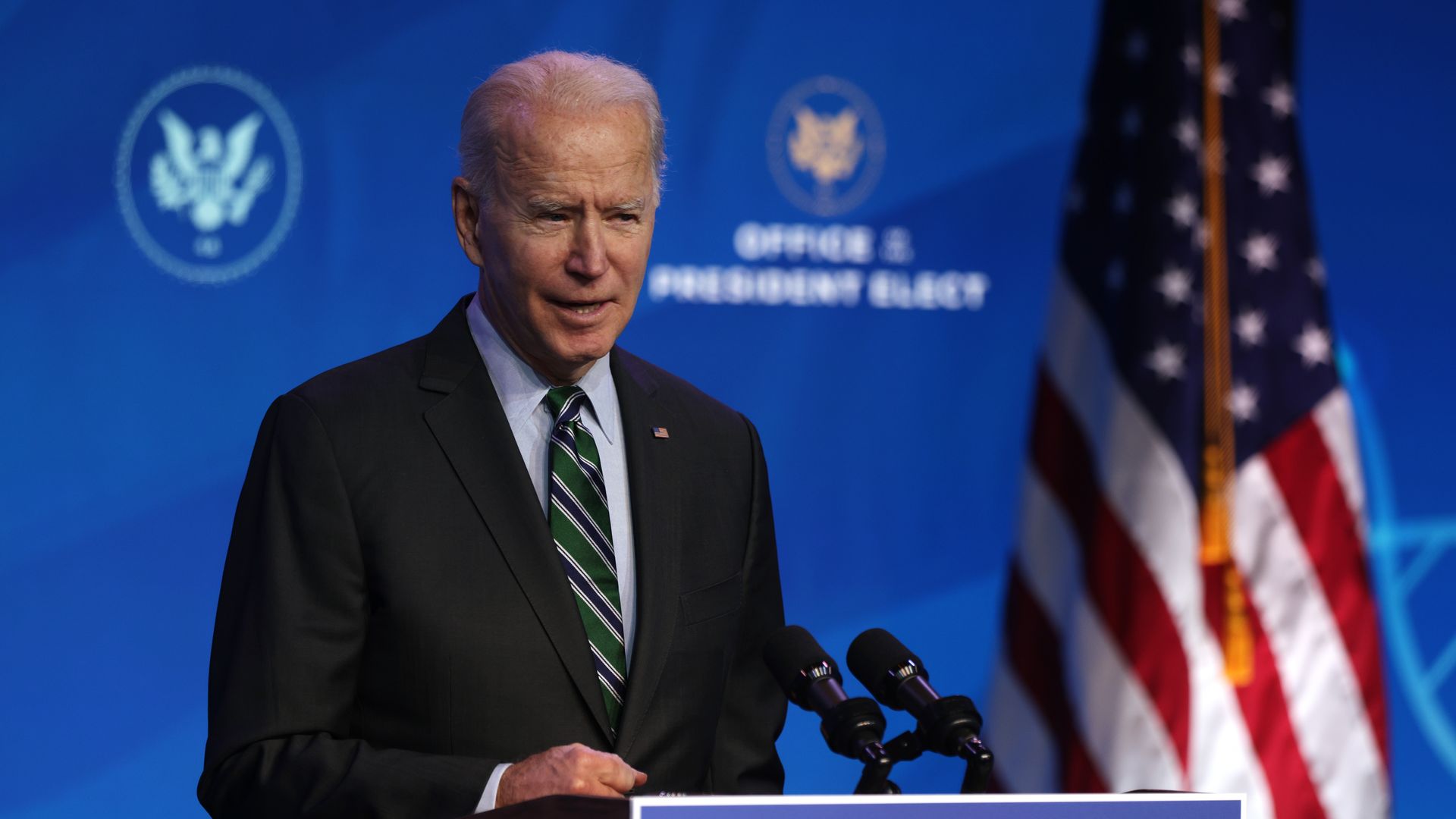Biden to propose pathway to citizenship for undocumented immigrants
Add Axios as your preferred source to
see more of our stories on Google.

Photo: Alex Wong/Getty Images
One his first day in office, President-elect Biden will propose legislation that would give an eight-year path to citizenship for millions of undocumented immigrants.
Why it matters: The proposal — the U.S. Citizenship Act of 2021 — is a stark shift away from former President Trump's harsh policies and rhetoric on immigration and fulfills a campaign promise of Biden's.
The big picture: Biden’s proposal is just the starting point. Any immigration bill would need to get 60 votes in a 50-50 split Senate — and immigration has long proved a contentious and partisan issue especially as the Republican party has veered rightward on the issue.
- Leon Fresco, an immigration attorney who worked in the Obama administration, told Axios that there is no chance of passage of Biden’s bill if Republican votes are needed. Republicans will use a more conservative 2013 immigration bill as their starting point. But the proposal gives soon-to-be Senate Majority Leader Chuck Schumer an aspirational goal to achieve.
What they're saying: "The American public know that our immigration system is not working the way it should be, and we need a complete overhaul that both protects American people but also consistent with our values," one incoming White House official told reporters on a call Tuesday evening.
Details: The plan has three goals, incoming officials said: Create paths to citizenship for unauthorized immigrants in the U.S., build out smart border controls and address the root causes of migration, particularly in Central America.
- The bill provides green cards immediately for so-called Dreamers, Temporary Protected Status holders and immigrant farmworkers. This comes with a pathway to citizenship after three years.
- It also would give other unauthorized immigrants who meet certain requirements the ability to apply for temporary legal status, which would allow them to apply for a green card after five years. From then, they would be able to apply for citizenship three years later. People must have been present in the United States on or before Jan 1 to qualify.
- It also expands access for asylum seekers at the border, eliminates the one-year deadline for filing asylum claims, and would add processing centers for refugees in Central American countries.
- The legislation proposes a different approach to border security rather than continuing with Trump's wall, although there is no set dollar amount for enhancing border security.
- "The idea is that we're focusing on threats to national security and public safety, but we need to know how funds are being used now in order to be able to determine what else is needed," an incoming White House official said.
- Enhanced security is a requirement for Republicans when looking at immigration legislation.
- The bill also provides $4 billion over four years to help combat underlying causes of migration, including in El Salvador, Guatemala and Honduras.
- On the legal immigration side, the bill would end per-country caps for employment-based green cards and raise the caps for family-based green cards.

